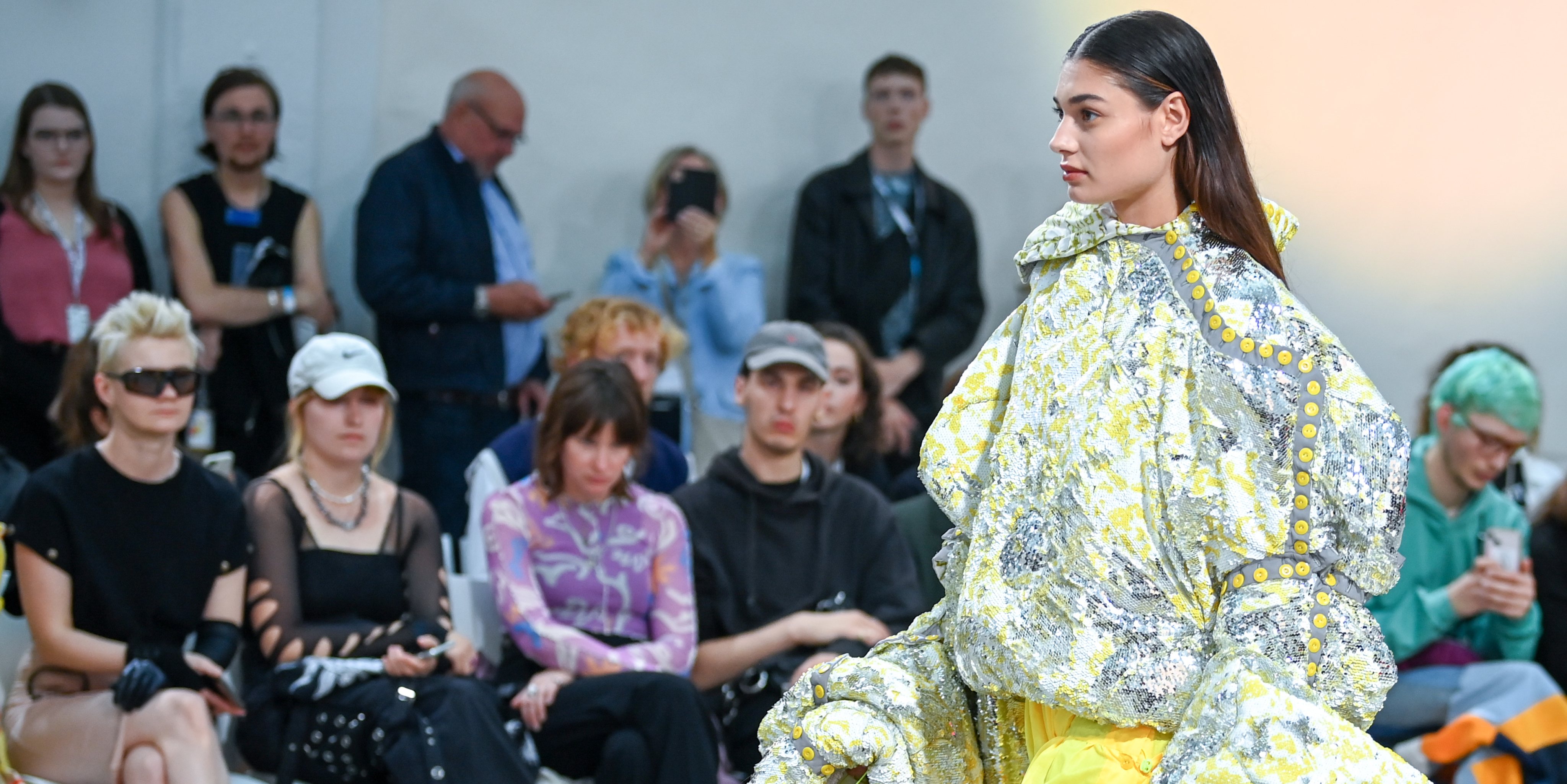The signs that the Portuguese presence among Germanic creations is worth encouraging come right at the entrance to the hall. At Kulturforum, with an oversize jacket from Batalan Workshop, the patchwork of scarves from football clubs confirms the trend: before taking the field in Frankfurt, Sporting was already marking ground in the capital. In the midst of Fashion Week, here is a copy from the 1999/2000 season, a vintage model, therefore, that draws the attention of those who arrive after passing through the ground floor, where the result of the collaboration between Ugg X FCG Rising Voices, and an installation by Ukrainian Jean Gritsfeldt.
The event that started last Monday comes to an end this Saturday, after an extensive calendar of parades, showcases, installations, conferences, parties and other parallel events that aim to take a showcase of 15 years still at a distance from the veterans of the Paris fund. or Milan. And in a Berlin that enters a warm autumn, the sunny south of Europe is the one that enters the field the fastest (much more than going around in a city with works around the corner and congestion reinforced by the visit of the president From Israel). “These shoes are made in Portugal”, points out Christof Baum. In São João da Madeira, to be more precise, in case you don’t have the obvious coordinates regarding shoe production. Christof leads Maison Baum, one of the 30 brands present at this Der Berliner Salon, a clothing and accessories stage that brings together some of the most vibrant names on the Berlin scene. He admits that German women prefer practical sneakers for everyday wear and reserve heels for special moments, and as fashions and times are different, the customer list is also popular with men. “The numbers go up to 42. We have a dentist from Hannover who wears very high heels, especially in pink.”
Originally formed with a French colleague, an orthopedic surgeon, the brand launched two years ago has updated its vocation to register Fashion. After studying production in China and Italy, it was in Portugal that Baum found the “factories most receptive to the introduction of changes. It was important for me to be comfortable, to be able to dance with them.”
The bridge with the (well) “made in Portugal” will take us practically four days —and we do not stop, of course, in clothes or accessories, such as the black handbag with the signature Elisabete Machado that carries the Finnish Sari from her suitcase to show us in the middle of a lunch. “It is a good sign to see that it is still being produced in Europe!”. After a tour of Californian nectars, the meeting at the table of a retinue of 25 people, including buyers and the press, is washed down with a highly praised Três Bagos. “Excellent! I always choose Douro when I go to Portugal,” explains his sister, Marianne, counting down the days to venture into the vegetables of the Algarve in October. “We vary between Vilamoura and Portimão, which is half the price.”
This article is exclusive to our subscribers: subscribe now and benefit from unlimited reading and other benefits. If you are already a subscriber, log in here. If you think this message is an error, please contact our customer service.
Source: Observadora
